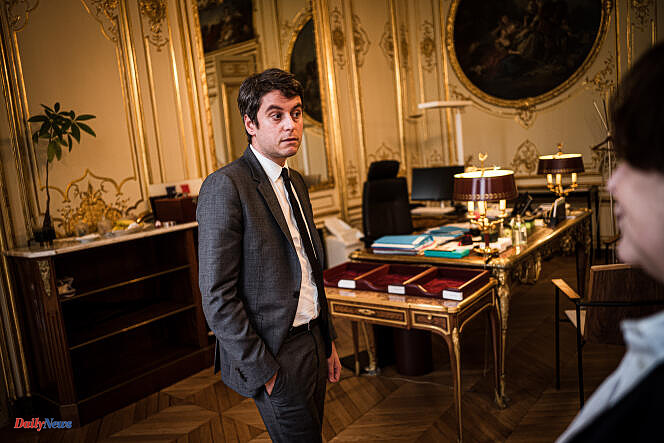In his general policy speech, the Prime Minister, Gabriel Attal, promised on January 30 to fight against the difficulties of access to healthcare for the French. In an interview given to several regional press titles on Saturday April 6, the head of government gave details of the measures he intends to put in place to try to respond to the crisis in the city healthcare system, with the desire to recover 15 to 20 million medical slots. Mr. Attal therefore wants certain medical appointments not honored to be punished in the future with a financial penalty of 5 euros, payable by the offending patient – a sanction known as the “rabbit tax”.
“We can no longer afford” these unfulfilled appointments, declares the Prime Minister, who wants the implementation of an “accountability mechanism” via a legal text. According to the Order of Physicians and certain unions such as the UFML, the cost of these “rabbits” is estimated at 27 million lost consultations each year.
The government wants that from January 1, 2025, on online appointment platforms such as Doctolib, a financial penalty of 5 euros will be imposed on the patient who does not show up and who does not notify less than twenty-four hours before. This financial penalty will be at the hand but also for the benefit of the doctor, who will have the mission of reporting it. In addition, some 4,000 additional medical assistants will be put in place, who will take care of a certain number of formalities.
The Prime Minister also wants to reconquer certain niches during which the lack of general practitioners becomes even more glaring. This is the case on weekends and evenings, from 6 p.m. to midnight. “5% of territories are not covered,” underlines Matignon. “These are times when we forego care or we go to the emergency room, which [there] leads to an embolism.” He says he wants to “go all out” through financial incentives, but warns that if doctors do not play the game, the government will consider more restrictive methods.
In thirteen test departments – one per major region – patients will be able to go to the physiotherapist without a prescription, just as it will be possible to consult a specialist doctor again without a prescription.
Failure of the system My psychological support
Other measures, some already known, were described by Gabriel Attal during this interview. The number of places in the second year of medicine will increase from 10,000 in 2023 to 12,000 in 2025, then 16,000 in 2027. But the replacement of the old numerus clausus with very limited places by this “numerus apertus” (from the Latin, “open number”) will only begin to produce its effects from 2035, the time to train these professionals.
Gabriel Attal also intends to experiment in certain departments, from January 2025, with direct access to specialists without going through a general practitioner, contrary to the current rule. The Prime Minister also says he is “concerned by the deterioration in the state of mental health of our young people and by suicidal thoughts which are increasing very sharply among high school students”. He confirms his wish to review the My Psychological Support system, which, according to him, does not work.
This system, deployed in spring 2022, provides access to eight sessions with the psychologist reimbursed by Health Insurance and complementary health insurance, on the recommendation of the doctor. These sessions, open to people suffering from “mild to moderate” mental disorders, did not give “the expected results”, Mr. Attal estimated during his general policy speech.
Freshly received announcements
These announcements caused the unions to react. They “arrive point blank, at the very moment when we are negotiating with Health Insurance, precisely to improve access to care,” laments the president of the first general practitioner union, MG France, Agnès Giannotti. This “deconstructs” our work, she says, believing that direct access to specialists “won’t solve anything”, since these professionals are lacking everywhere.
Some announcements “are mind-blowing, we are very angry”, criticizes Franck Devulder, president of the CSMF union, “shocked” by the idea of “direct access to psychologists for 50 euros”, while the authorities only offer “ 30 euros” for the basic GP consultation. He deplores various delegations of tasks to professionals “whose job it is not”. “Under the pretext of simplification, we are short-circuiting everything, pushing aside doctors” and “disregarding quality,” he judged. However, he was delighted “that finally”, a government is proposing that practitioners levy a “rabbit tax”.












